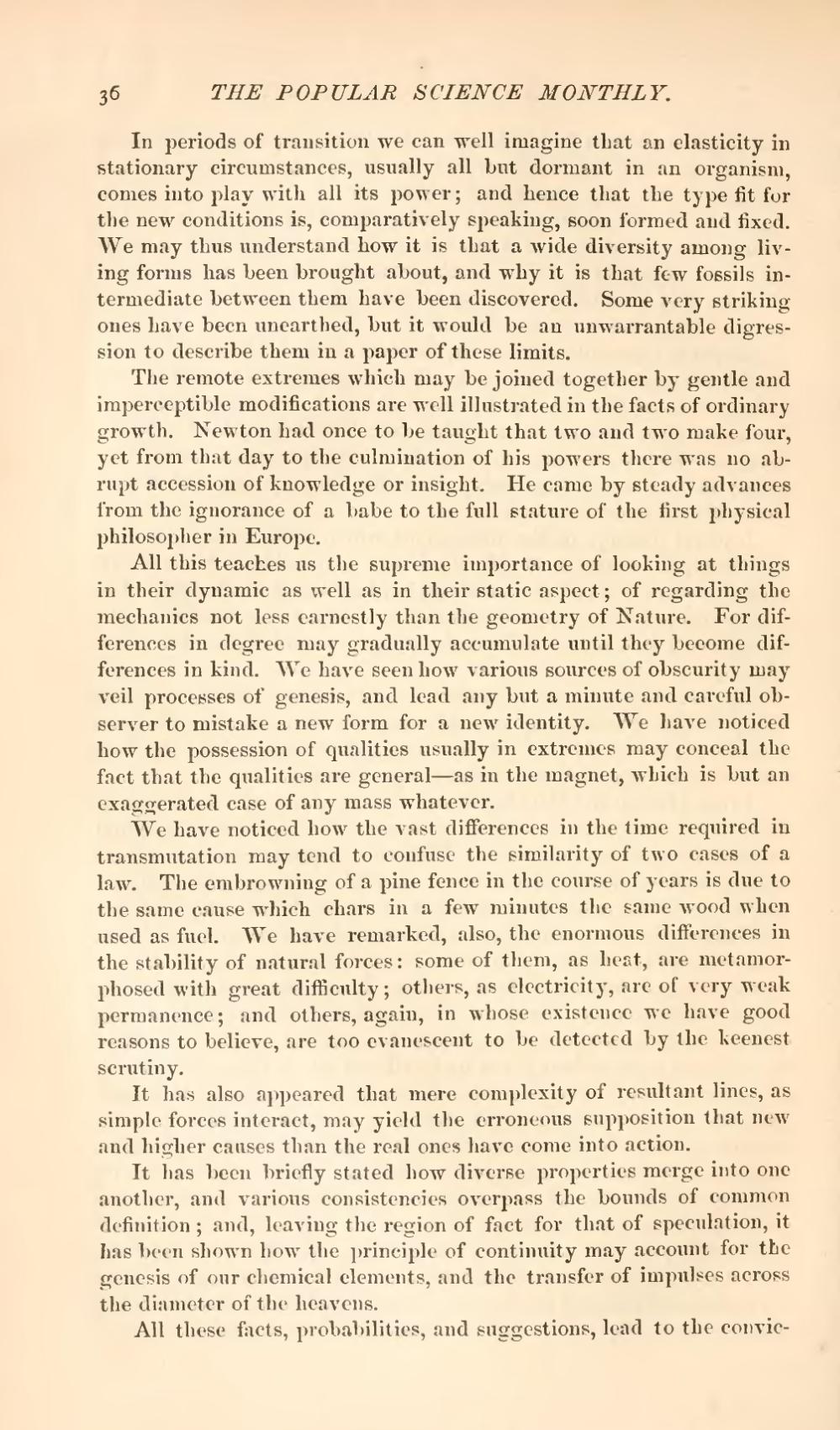In periods of transition we can well imagine that an elasticity in stationary circumstances, usually all but dormant in an organism, comes into play with all its power; and hence that the type fit for the new conditions is, comparatively speaking, soon formed and fixed. We may thus understand how it is that a wide diversity among living forms has been brought about, and why it is that few fossils intermediate between them have been discovered. Some very striking ones have been unearthed, but it would be an unwarrantable digression to describe them in a paper of these limits.
The remote extremes which may be joined together by gentle and imperceptible modifications are well illustrated in the facts of ordinary growth. Newton had once to be taught that two and two make four, yet from that day to the culmination of his powers there was no abrupt accession of knowledge or insight. He came by steady advances from the ignorance of a babe to the full stature of the first physical philosopher in Europe.
All this teaches us the supreme importance of looking at things in their dynamic as well as in their static aspect; of regarding the mechanics not less earnestly than the geometry of Nature. For differences in degree may gradually accumulate until they become differences in kind. We have seen how various sources of obscurity may veil processes of genesis, and lead any but a minute and careful observer to mistake a new form for a new identity. We have noticed how the possession of qualities usually in extremes may conceal the fact that the qualities are general—as in the magnet, which is but an exaggerated case of any mass whatever.
We have noticed how the vast differences in the time required in transmutation may tend to confuse the similarity of two cases of a law. The embrowning of a pine fence in the course of years is due to the same cause which chars in a few minutes the same wood when used as fuel. We have remarked, also, the enormous differences in the stability of natural forces: some of them, as heat, are metamorphosed with great difficulty; others, as electricity, are of very weak permanence; and others, again, in whose existence we have good reasons to believe, are too evanescent to be detected by the keenest scrutiny.
It has also appeared that mere complexity of resultant lines, as simple forces interact, may yield the erroneous supposition that new and higher causes than the real ones have come into action.
It has been briefly stated how diverse properties merge into one another, and various consistencies overpass the bounds of common definition; and, leaving the region of fact for that of speculation, it has been shown how the principle of continuity may account for the genesis of our chemical elements, and the transfer of impulses across the diameter of the heavens.
All these facts, probabilities, and suggestions, lead to the convic-

